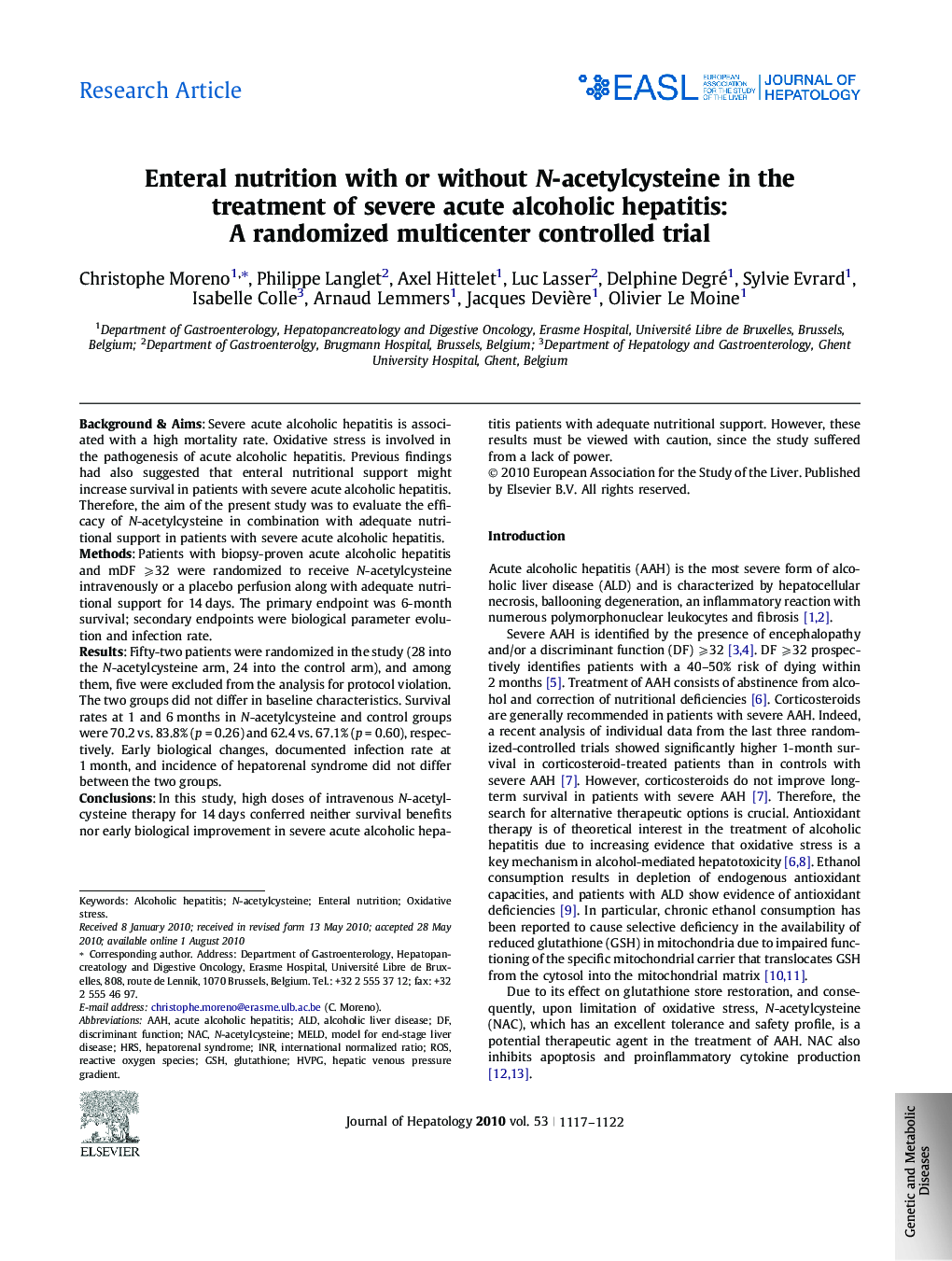| Article ID | Journal | Published Year | Pages | File Type |
|---|---|---|---|---|
| 6109343 | Journal of Hepatology | 2010 | 6 Pages |
Background & AimsSevere acute alcoholic hepatitis is associated with a high mortality rate. Oxidative stress is involved in the pathogenesis of acute alcoholic hepatitis. Previous findings had also suggested that enteral nutritional support might increase survival in patients with severe acute alcoholic hepatitis. Therefore, the aim of the present study was to evaluate the efficacy of N-acetylcysteine in combination with adequate nutritional support in patients with severe acute alcoholic hepatitis.MethodsPatients with biopsy-proven acute alcoholic hepatitis and mDF ⩾32 were randomized to receive N-acetylcysteine intravenously or a placebo perfusion along with adequate nutritional support for 14 days. The primary endpoint was 6-month survival; secondary endpoints were biological parameter evolution and infection rate.ResultsFifty-two patients were randomized in the study (28 into the N-acetylcysteine arm, 24 into the control arm), and among them, five were excluded from the analysis for protocol violation. The two groups did not differ in baseline characteristics. Survival rates at 1 and 6 months in N-acetylcysteine and control groups were 70.2 vs. 83.8% (p = 0.26) and 62.4 vs. 67.1% (p = 0.60), respectively. Early biological changes, documented infection rate at 1 month, and incidence of hepatorenal syndrome did not differ between the two groups.ConclusionsIn this study, high doses of intravenous N-acetylcysteine therapy for 14 days conferred neither survival benefits nor early biological improvement in severe acute alcoholic hepatitis patients with adequate nutritional support. However, these results must be viewed with caution, since the study suffered from a lack of power.
